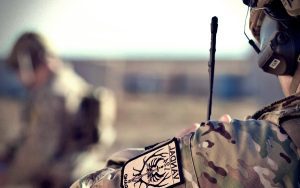Military Rule of Evidence 608 – A Witness’s Character for Truthfulness or Untruthfulness
Rule 608(a) and (b):
Rule 608. Evidence of character, conduct, and bias of the witness
Opinion and reputation evidence of character. The credibility of a witness may be attacked or supported by evidence in the form of opinion or reputation, but subject to these limitations: (1) the evidence may refer only to character for truthfulness or untruthfulness, and (2) evidence of truthful character is admissible only after the character of the witness for truthfulness has been attacked by opinion or reputation evidence or otherwise.
Specific instances of conduct. Specific instances of the conduct of a witness, for the purpose of attacking or supporting the credibility of the witness, other than conviction of crime as provided in MRE 609, may not be proved by extrinsic evidence. They may, however, in the discretion of the military judge, if probative of truthfulness or untruthfulness, be inquired into on cross-examination of the witness (1) concerning the character of the witness for truthfulness or untruthfulness, or (2) concerning the character for truthfulness or untruthfulness of another witness as to which character the witness being cross-examined has testified. The giving of testimony, whether by an accused or by another witness, does not operate as a waiver of the privilege against self-incrimination when examined with respect to matters which relate only to credibility.
Once a witness testifies, including the accused or a hearsay declarant, his or her credibility becomes an issue. Evidence of character is then relevant. Rule 608(a) limits the relevance to truthfulness or untruthfulness. Methods of proving character are set out in Rule 405. Under 608(a), the character must be attacked before it may be rehabilitated. Thus, bolstering is prohibited by the rule. Once attacked, the witness’ character for being truthful may be rehabilitated with opinion or reputation evidence. See United States v. Jenkins, 50 M.J. 577 (N. M. Ct. Crim. App. 1999), a witness cannot comment directly about the credibility of another witness’s testimony.
The foundational elements:
 Reputation witness must show he or she is a member of the same community as the witness to be attacked or rehabilitated and that he or she has lived or worked there long enough to have become familiar with the witness’s reputation for truthfulness or the untruthfulness. United States v. Toro, 37 M.J. 313 (C.M.A. 1993).
Reputation witness must show he or she is a member of the same community as the witness to be attacked or rehabilitated and that he or she has lived or worked there long enough to have become familiar with the witness’s reputation for truthfulness or the untruthfulness. United States v. Toro, 37 M.J. 313 (C.M.A. 1993).
Opinion witness must demonstrate that he or she is personally acquainted with a witness and on that basis is able to have formed an opinion about the truthfulness or the lack thereof. United States v. Perner, 14 M.J. 181 (C.M.A. 1982).
When cross-examination is conducted in such a manner as to induce the belief of untrustworthiness, rehabilitation is permitted. United States v. Allard, 19 M.J. 346 (C.M.A. 1985). Also, a “slashing cross-examination” will satisfy the “or otherwise” component of Rule 608(a). United States v. Everage, 19 M.J. 189 (C.M.A. 1985). Note, however, that merely introducing evidence that contradicts a witness’s testimony or statement is not an “or otherwise” attack under Rule 608(a).
Rule 608(b)(2) provides that a character witness can be asked questions about specific acts of the person whose credibility has been attacked or rehabilitated as a means of “testing” the character witness.
The questioner is precluded from introducing extrinsic evidence in support of his inquiry. This avoids a “trial within a trial.” If the witness denies knowledge of the specific acts, no extrinsic evidence of specific acts is permitted. You are “stuck with the answer.” United States v. Cerniglia, 31 M.J. 804 (AFCMR 1991).
Operation of the “Collateral Fact Rule.” Under the rule, extrinsic evidence is inadmissible to impeach witnesses on collateral facts. The purpose of the rule is to prevent digression into unimportant matters, since the potential for wasting time and confusing the factfinder is particularly high when extrinsic evidence is used to impeach. It does not limit the cross-examiner’s questioning of a witness about collateral facts, subject to the general discretion of the court.
The rule applies to Impeachment under Rule 608(b) and the cross-examination of a character witness under Rule 405(a).
When the rule does not apply, the cross-examiner may question the witness and offer extrinsic evidence. The rule does not apply to:
Bias under Rule 608(c); Defects in capacity (United States v. White, 45 M.J. 345 (1996)); Prior inconsistent statements under Rule 613 and 801(d)(1)(A); Impeachment by contradiction; or Impeachment under Mil.R.Evid 609.
“Human Lie Detector” Testimony. In United States v. Kasper, 58 M.J. 314 (2003), the CAAF held that “human lie detector” testimony by an OSI agent violates the limits on character evidence in Rule 608(a) because it offers an opinion of the declarant’s truthfulness on a specific occasion. At trial, an OSI agent testified that her training had helped her to identify whether subjects were being truthful in interviews.
